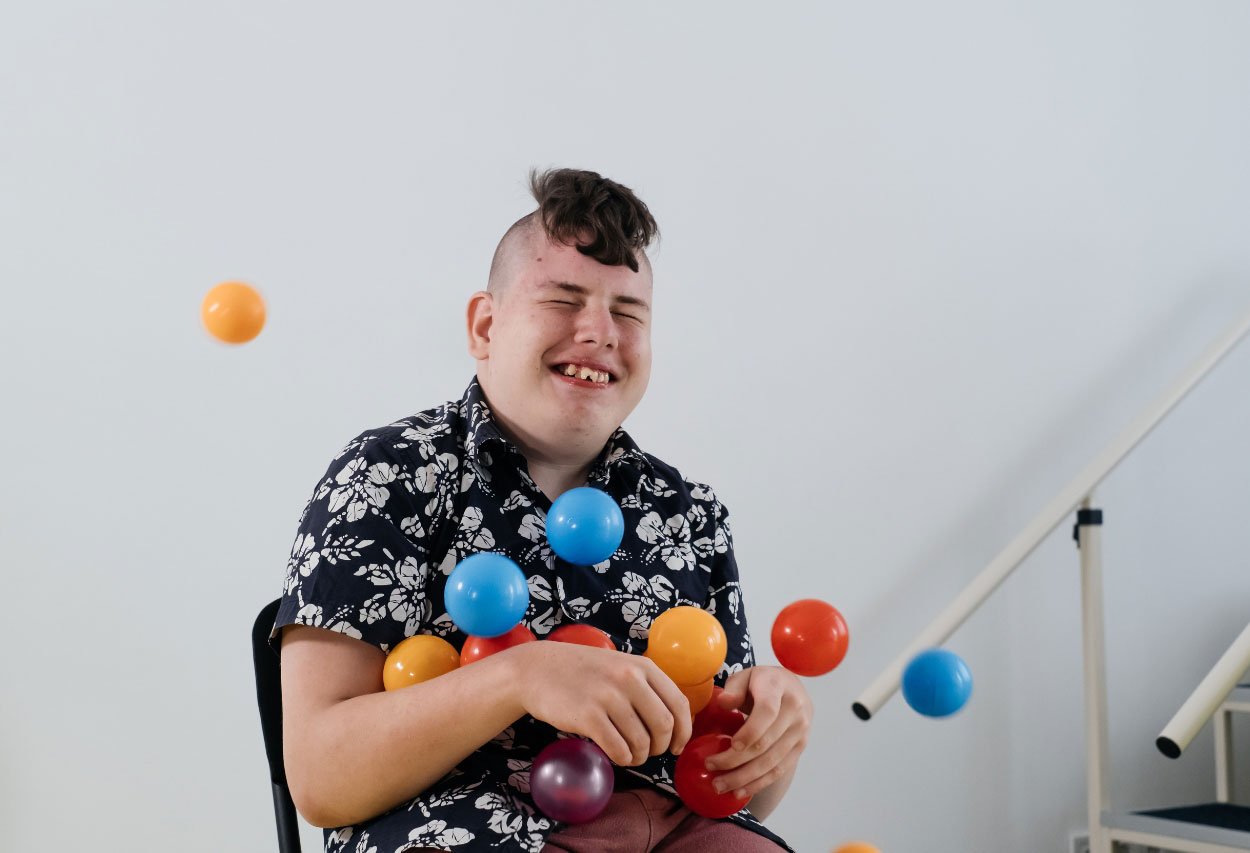Natural Therapies for Autism: A Functional Medicine Approach to Root Causes and Support

A Personal Note from George
Natural therapies for autism can offer much more than symptom relief — they can uncover what’s actually driving sensory overwhelm, emotional dysregulation, or communication struggles beneath the surface. Whether you’re a parent, carer, or neurodivergent adult yourself, we recognise that autism is a spectrum of experiences, not a one-size-fits-all condition.
At BalanSoul, we work collaboratively with you to identify underlying imbalances in brain chemistry, gut health, nutrient pathways, and stress responses — using personalised, evidence-informed care that respects your story.
What Is Autism? A Functional Perspective
Autism Spectrum Disorder (ASD) — sometimes referred to as autism spectrum disorder — is a neurodevelopmental condition that affects how a person communicates, connects, and processes the world around them.
But here’s the part many people never hear…
Autism isn’t one thing. It’s a complex neurobiological profile shaped by genetics, environment, nutrient biochemistry, and nervous-system sensitivity.
Symptoms can range from speech delays to sensory sensitivities, from repetitive behaviours to deep focus and creativity. Many people with ADHD or autism share overlapping traits — and sometimes both conditions coexist.
Is autism an intellectual disability?
Not always. While some individuals have intellectual challenges, many autistic people have average or above-average intelligence.
Why does this matter?
Because too often, autistic individuals and families are handed simplistic explanations. At BalanSoul, we look beneath the surface — because understanding why is the first step toward meaningful support.
Root Causes & Contributing Factors

We recognise that autism is not caused by a single factor. Instead, deeper influences may affect nervous-system development, behaviour, and sensory processing.
Here’s what research — and clinical experience — suggests:
Biochemical Imbalances
- Methylation issues (e.g., MTHFR, folate/B12)
- Sulfate deficiency or poor sulfation
- Glutamate excess, excitatory neurotransmitters
- Neuroinflammation and oxidative stress
Why this matters:
These pathways influence detoxification, neurotransmitter balance, emotional regulation, and sensory processing.
Environmental & Gut Triggers
- Food sensitivities (gluten, dairy, soy)
- Gut dysbiosis, leaky gut, Clostridia overgrowth
- Pesticide or glyphosate exposure
- Artificial colours, additives, preservatives
👉 Research continues to show strong links between gut health and neurodevelopment.
Genetic & Epigenetic Vulnerabilities
- COMT, DAO, MTHFR SNPs affecting neurotransmitter balance
- Histamine intolerance
- Cerebral folate receptor autoantibodies
These don’t determine destiny — but they can influence reactivity, stress tolerance, and nutrient requirements.
Lifestyle Contributors
- Picky eating / sugar-heavy diets
- Poor sleep or hygiene
- Early antibiotic/medication exposure
And here’s an important piece many families ask…
Common Traits of Autism

While every person is different, here are some of the broader autism traits we may observe — many of which reflect natural variations in neurodivergent expression:
- Sensory uniqueness — heightened sensitivity or fascination with textures, sounds, or visuals
- Structured preferences — strong desire for routine or predictability
- Communication differences — variations in speech, tone, or expression
- Repetitive behaviours — organising, patterning, or focusing deeply
- Deep focus — immersive interest in specific topics or themes
- Autism burnout — exhaustion after masking or navigating overwhelming environments
Signs & Symptoms of Autism

Autism presents differently for every person — but when support is needed, these traits may become more noticeable.
And here’s where things often get misunderstood…
Social & Communication:
- Limited eye contact or facial engagement
- Difficulty interpreting non-verbal cues (facial expression, tone, body language)
- Echolalia or scripting (repeating phrases)
- Challenges with back-and-forth conversation or social reciprocity
Behavioral Patterns:
- Distress with changes in routine
- Repetitive movements (e.g., rocking, flapping)
- Narrow, intense interests that may seem all-consuming
Sensory Reactions:
- Strong reactions to sound, light, texture, or taste
- Sensory-seeking behaviors (e.g., spinning, pressure, movement)
- Sensory avoidance when environments feel “too much”
Emotional Regulation:
- Meltdowns or shutdowns when overwhelmed
- Heightened anxiety in unpredictable settings
- Intense emotional responses that feel “out of scale”
Physical / Developmental Clues:
- Sleep challenges or night waking
- Digestive issues or dietary limitations (picky eating)
- Motor delays or coordination differences
How It Feels To Live With Autism
Sometimes families share words like:
“It’s like the world is too loud, too bright, too fast.”
“They want to connect, but something gets in the way.”
Many autistic children and adults experience exhaustion from trying to fit in, or confusion about their intense reactions.
And here’s something important: meltdowns and shutdowns aren’t bad behavior — they’re communication.
Parents also describe experiences like:
“We finally slept through the night after years of restlessness.”
“We thought his lack of energy was just ‘part of autism’ — but carnitine changed everything.”
What Clients Often Say
“I didn’t realise gut problems could affect his meltdowns.”
“No one ever mentioned B6 or zinc before.”
“We finally slept through the night after two years of chaos.”
These moments of clarity often happen when families discover the biochemical clues that were hiding underneath the behaviors.
Functional Testing & Investigation

At BalanSoul, we go beyond diagnostic labels to uncover the biochemical drivers of schizophrenia. The Walsh Protocol — based on over 30,000 cases — reveals that many individuals with schizophrenia-spectrum symptoms present with specific, testable patterns in brain chemistry.
According to Dr. Walsh’s clinical database, more than 60% of individuals with schizophrenia exhibit significant methylation imbalances — often missed in standard care.
These patterns aren’t just theoretical. They affect how someone responds to medications, folate, or even basic nutrients like zinc or B6 — and often explain why conventional treatments fall short.
Let’s explore the most common biotypes seen in schizophrenia.
Autism isn’t caused by one single factor — and that’s why we don’t use a one-size-fits-all test. Functional medicine gives us the tools to investigate the root causes of traits like mood swings, digestive issues, hyperactivity, or sleep disruption. Whether we’re assessing copper levels, gut pathogens, or methylation imbalances, each test helps us build a clearer picture of what’s happening behind the behaviors — and how to support the body and brain from the inside out. Here are a few tests we may utilize…
- Zinc and copper levels (RBC preferred)
- Histamine/methylation panels
- Pyrrole (HPL) test
- Organic acids test (OAT)
- IgG/IgE food sensitivities
- Vitamin D / iron / folate receptor antibodies
- Stool analysis (GI-MAP, Genova)
Testing helps clarify the difference between autism and ADHD, and shows how to personalize nutritional and therapeutic care.
Biochemical Clues in Autism: What Symptoms May Be Telling Us
Sometimes what looks like “just behavior” — picky eating, meltdowns, aggression — is actually the body asking for help.
Functional testing allows us to decode these clues and uncover nutrient, gut, or metabolic imbalances that may be contributing to your child’s (or your own) experience of autism.
And here’s where things get fascinating…
Many everyday symptoms correspond to specific, testable biochemical patterns.
| 🧩 Clue / Symptom | 🔬 Possible Biochemical Link |
| Picky eating, night waking | Zinc/B6 deficiency |
| High pain tolerance | Endorphin imbalance |
| Gut issues + aggression | Clostridia overgrowth |
| Language regression | Cerebral folate autoimmunity |
| Meltdowns after food dye or salicylates | Phenol/salicylate sensitivity |
| Histamine-like reactions after meals | Histamine intolerance / DAO SNPs |
| Obsessive play or vocal scripting | Elevated glutamate / methylation imbalance |
| Pale skin + fatigue | Iron deficiency / low mitochondrial function |
| Frequent infections or poor wound healing | Low zinc + chronic oxidative stress |
👉 These clues don’t diagnose autism — but they can uncover why certain traits feel harder, and where targeted support may help.
Natural & Integrative Support Options

Children and adults on the autism spectrum often respond best to care plans that honour both the biology and the nervous system.
That’s why our approach blends nutritional psychiatry, botanical medicine, lifestyle therapies, and nervous-system regulation — all tailored to your child’s unique biochemical needs.
And here’s where things become especially meaningful…
When the right supports are combined, families often notice better sleep, calmer behavior, clearer communication, and improved emotional regulation.
Nutritional Psychiatry
Our evidence-informed nutrient plans target biochemical patterns commonly seen in autism, including zinc deficiency, magnesium depletion, oxidative stress, and methylation imbalances.
- Personalized nutrient plans: zinc, magnesium, carnitine, B6, omega-3s
- Methylation and detox pathway support
💡 Why it matters: Even small nutrient corrections can support neurotransmission, sensory processing, and daily resilience.
Botanical Medicine
Gentle herbal medicines can help soothe both the body and the mind.
Herbs that support digestion, calm the nervous system, ease sensory overload, or reduce inflammatory stress
Examples may include chamomile, lemon balm, passionflower, or GI-soothing botanicals — always personalised case-by-case.
Therapeutic Diets
Because gut function and behavior are closely connected in many autistic individuals, dietary interventions are often transformative.
- GFCFSF diets (gluten-free, casein-free, soy-free) when indicated
- Low-salicylate or low-glutamate plans (used case-by-case, especially where behavioural activation or histamine-like reactions occur)
💡 These diets aren’t about restriction — they’re about reducing neurological stress and supporting calmer, steadier functioning.
Nervous System Regulation
Autistic nervous systems often oscillate between hyper-vigilance and exhaustion. These supports help restore balance from the inside out.
- Epsom salt baths, magnesium soaks
- Gut restoration with probiotics and enzymes
- Polyvagal and somatic tools for emotional regulation
Think of these tools as giving the nervous system a softer landing — a way to shift from “survival mode” into safety and connection.
“We co-create a care plan as unique as your child — with natural and functional strategies backed by science.”
What to Expect From Working With Us
We know how important it is to feel heard, supported, and understood — especially when you’ve spent years searching for answers.
That’s why we begin with listening.
Your First Consultation (90 minutes)
Here’s what your initial session includes:
- Full history & intake — understanding patterns, behaviours, regressions, sensory triggers, past treatments, and family context
- Optional functional lab testing — offered when appropriate to investigate methylation, nutrient balance, gut health, oxidative stress, or biotype patterns
- Nutrition and lifestyle review
- Collaborative goal setting — ensuring recommendations match your child’s (or your) needs, pace, and capacity
👉 But here’s the part most families tell us they appreciate most:
- Nothing is rushed. Nothing overlooked.
You are given space to explain your concerns — and finally feel understood.

FAQ
Is autism an intellectual disability?
Not always — many autistic individuals have average or gifted intelligence.
Can we still work with you if my child is on medication?
Yes. We support both integrative and conventional approaches.
Will autism get worse with age?
Not usually, but unmet needs or poor support can increase stress responses over time.
Is this suitable for adults with autism?
Absolutely — we personalize for all ages.


